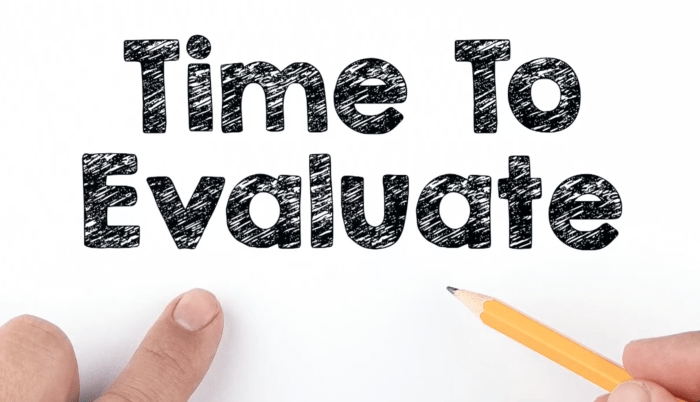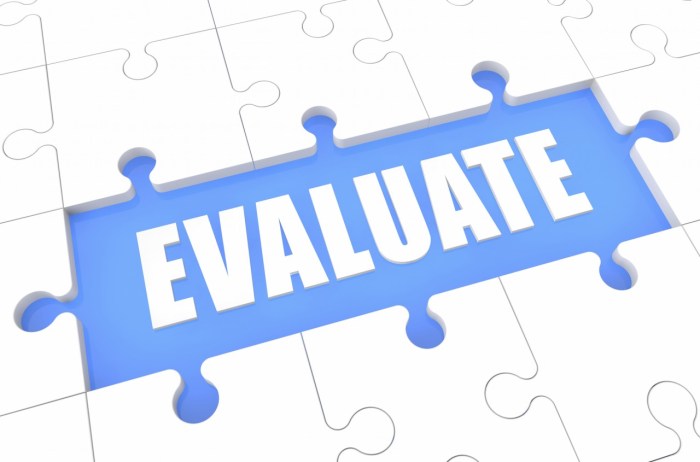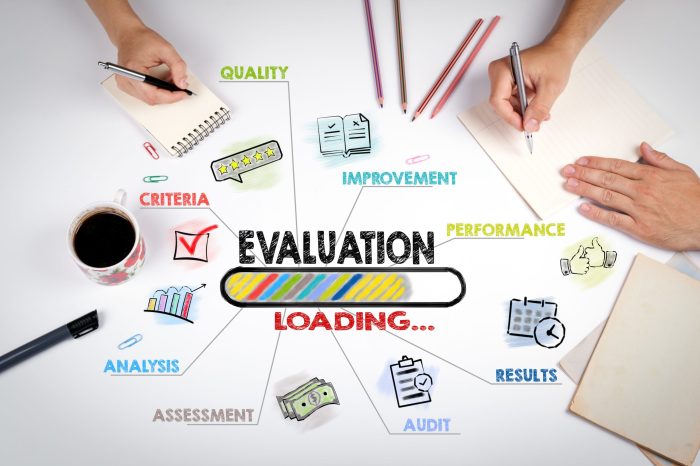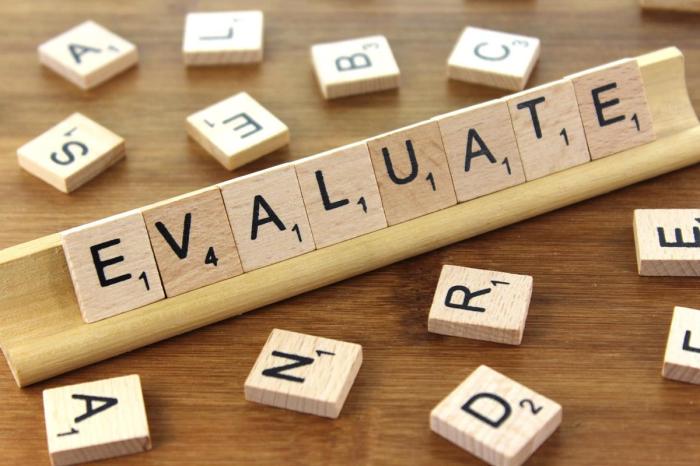Appraise for accuracy or suitability – Appraising for accuracy or suitability is a critical aspect of ensuring the reliability and relevance of appraisals. This comprehensive guide delves into the concepts of accuracy and suitability in appraisals, providing methods for assessing their effectiveness and identifying factors that influence their validity.
By understanding the principles and techniques Artikeld in this guide, professionals can conduct appraisals that are both accurate and suitable for their intended purpose, leading to informed decision-making and improved outcomes.
Accuracy Assessment

Accuracy refers to the degree to which an appraisal aligns with the true value of an asset. It is a crucial aspect of appraisals as it ensures the reliability and credibility of the estimated value.
Accuracy assessment involves evaluating the closeness of an appraisal to the actual value of the property. Several methods can be used for accuracy assessment, including:
- Comparative Analysis:Comparing the appraised value with similar properties that have recently sold in the same market.
- Sales Comparison Approach:Analyzing comparable sales data to determine the value of the subject property.
- Cost Approach:Estimating the cost of replacing or recreating the property based on current construction costs.
- Income Approach:Calculating the property’s value based on its potential income-generating capacity.
The accuracy of appraisals can be impacted by various factors, including:
- Appraiser’s Experience and Qualifications:The knowledge and expertise of the appraiser can influence the accuracy of the appraisal.
- Data Availability and Quality:The availability and reliability of data used in the appraisal process can affect its accuracy.
- Property Complexity:Unique or complex properties may require more specialized knowledge and analysis, potentially impacting accuracy.
- Market Conditions:Fluctuating market conditions can make it challenging to determine accurate property values.
- Bias:Appraisers may be influenced by biases or preconceptions, leading to inaccurate valuations.
Suitability Assessment

Suitability assessment evaluates the appropriateness of an appraisal for a specific purpose or use. It considers factors such as the appraisal’s methodology, assumptions, and data sources to determine whether it meets the intended needs.
Techniques for evaluating suitability include:
- Reviewing the appraisal report to assess its clarity, completeness, and consistency.
- Examining the appraisal methodology to ensure it is appropriate for the property type and market conditions.
- Verifying the data sources used in the appraisal and their reliability.
- Comparing the appraisal results with other recent appraisals of similar properties.
Factors Contributing to Suitability
Factors that contribute to the suitability of appraisals include:
- The purpose of the appraisal
- The type of property being appraised
- The market conditions at the time of the appraisal
- The experience and qualifications of the appraiser
Appraisal Standards

Appraisal standards serve as a crucial framework for ensuring the accuracy and suitability of appraisals. They establish guidelines and criteria that appraisers must adhere to when conducting property valuations.
Appraisal standards provide a consistent and objective approach to appraisals, minimizing biases and ensuring the reliability of the results. They also protect consumers by ensuring that appraisals are performed by qualified professionals using accepted methodologies.
Applying Appraisal Standards, Appraise for accuracy or suitability
Applying appraisal standards in practice requires a thorough understanding of the relevant guidelines and regulations. Appraisers must:
- Identify the appropriate standards for the type of appraisal being conducted.
- Follow the standards meticulously, ensuring that all required procedures are followed.
- Document all assumptions, calculations, and adjustments made during the appraisal process.
- Disclose any potential conflicts of interest or limitations that may affect the appraisal.
Best Practices in Appraisal Standards
Best practices in appraisal standards include:
- Utilizing recognized appraisal methodologies, such as the Uniform Standards of Professional Appraisal Practice (USPAP).
- Conducting thorough market research to gather relevant data for the appraisal.
- Considering all relevant factors that may affect the property’s value, such as location, condition, and market trends.
- Providing clear and concise appraisal reports that are easy to understand and supported by evidence.
Appraisal Tools and Techniques: Appraise For Accuracy Or Suitability

Appraisal tools and techniques play a crucial role in the accurate and reliable assessment of properties. These tools aid professionals in determining the value, condition, and suitability of properties for various purposes, such as mortgage lending, property management, and investment decisions.
Types of Appraisal Tools and Techniques
- Comparable Sales Analysis:Compares the subject property to similar properties that have recently sold in the area, considering factors such as location, size, condition, and amenities.
- Cost Approach:Estimates the replacement cost of the property by considering the cost of materials, labor, and overhead, minus depreciation.
- Income Approach:Capitalizes the net income generated by the property, considering factors such as rental income, operating expenses, and capitalization rate.
- Inspection and Analysis:A thorough physical inspection of the property to assess its condition, identify any defects, and evaluate its overall functionality.
Effectiveness of Appraisal Methods
The effectiveness of an appraisal method depends on various factors, including the type of property, market conditions, and the appraiser’s expertise. Comparable Sales Analysis is generally considered the most reliable method for residential properties, while the Cost Approach is more suitable for new or unique properties.
Selecting Appropriate Appraisal Tools
The selection of appropriate appraisal tools depends on the specific situation and purpose of the appraisal. Factors to consider include:
- Property Type:Different property types (e.g., residential, commercial, industrial) require different appraisal methods.
- Market Conditions:The availability of comparable sales data and the volatility of the market can influence the choice of method.
- Appraiser’s Expertise:The appraiser’s knowledge and experience with specific appraisal methods should be considered.
Appraisal Reporting
Appraisal reporting is the process of documenting the findings of an appraisal. The report should be clear, concise, and well-organized, and it should provide all of the information necessary for the reader to understand the appraisal process and the results.
The structure of an appraisal report typically includes the following sections:
- Introduction
- Scope of work
- Methodology
- Findings
- Conclusions
- Recommendations
The introduction should provide a brief overview of the appraisal process and the purpose of the report. The scope of work should describe the specific tasks that were performed during the appraisal. The methodology should explain the methods that were used to collect and analyze the data.
The findings should present the results of the appraisal, and the conclusions should summarize the key findings and their implications. The recommendations should provide specific actions that can be taken to address the findings of the appraisal.
When writing an appraisal report, it is important to be clear, concise, and objective. The report should be written in a style that is easy to understand, and it should avoid using jargon or technical terms that may not be familiar to the reader.
The report should also be objective and unbiased, and it should present the findings of the appraisal in a fair and impartial manner.
Expert Answers
What is the importance of accuracy in appraisals?
Accuracy is crucial in appraisals as it ensures that the information provided is reliable and can be relied upon for decision-making. Inaccurate appraisals can lead to incorrect conclusions and poor outcomes.
How can the suitability of an appraisal be evaluated?
Suitability in appraisals refers to the appropriateness of the appraisal method and criteria used for a specific purpose. Evaluating suitability involves considering the context, objectives, and intended audience of the appraisal.